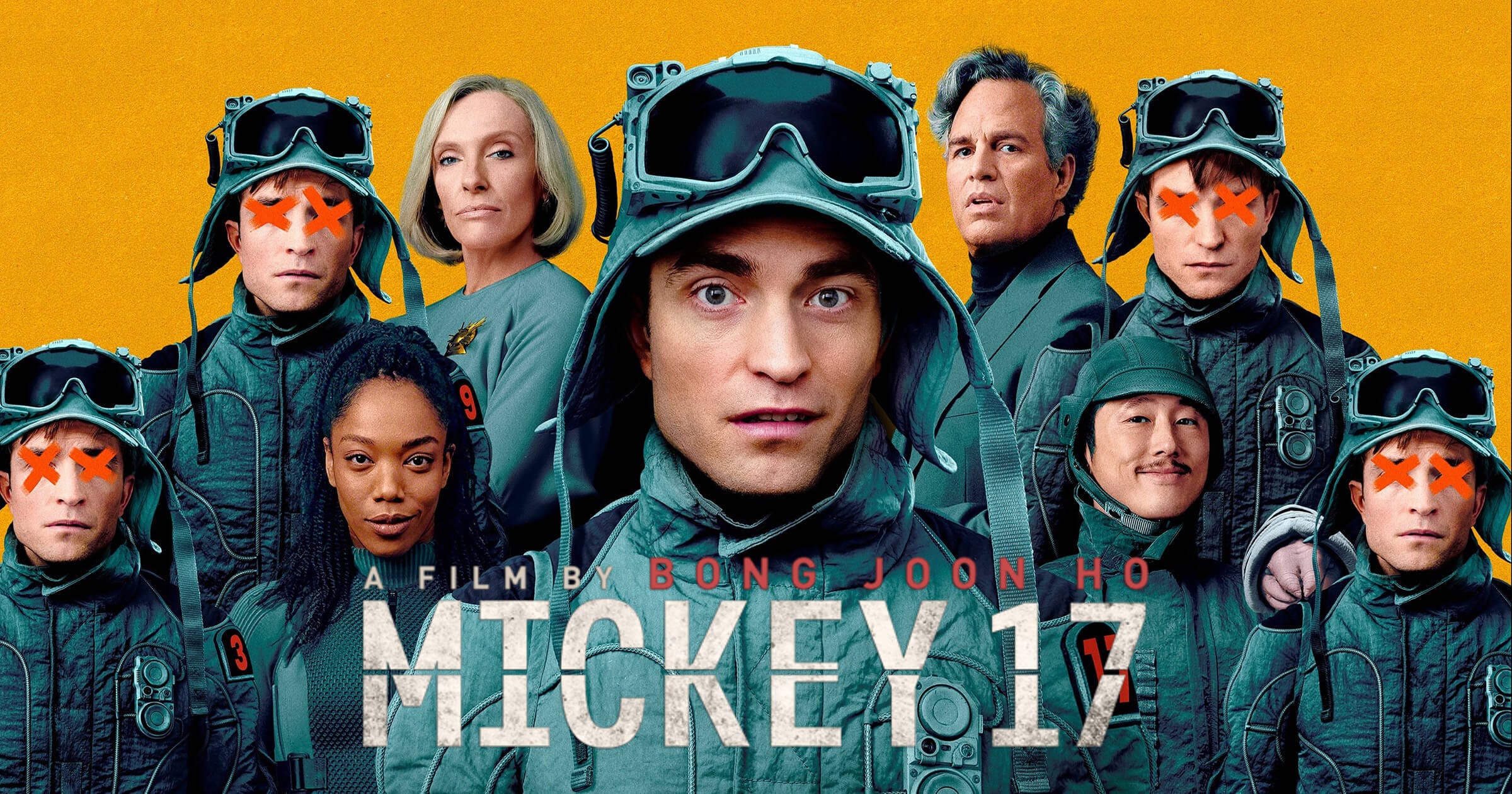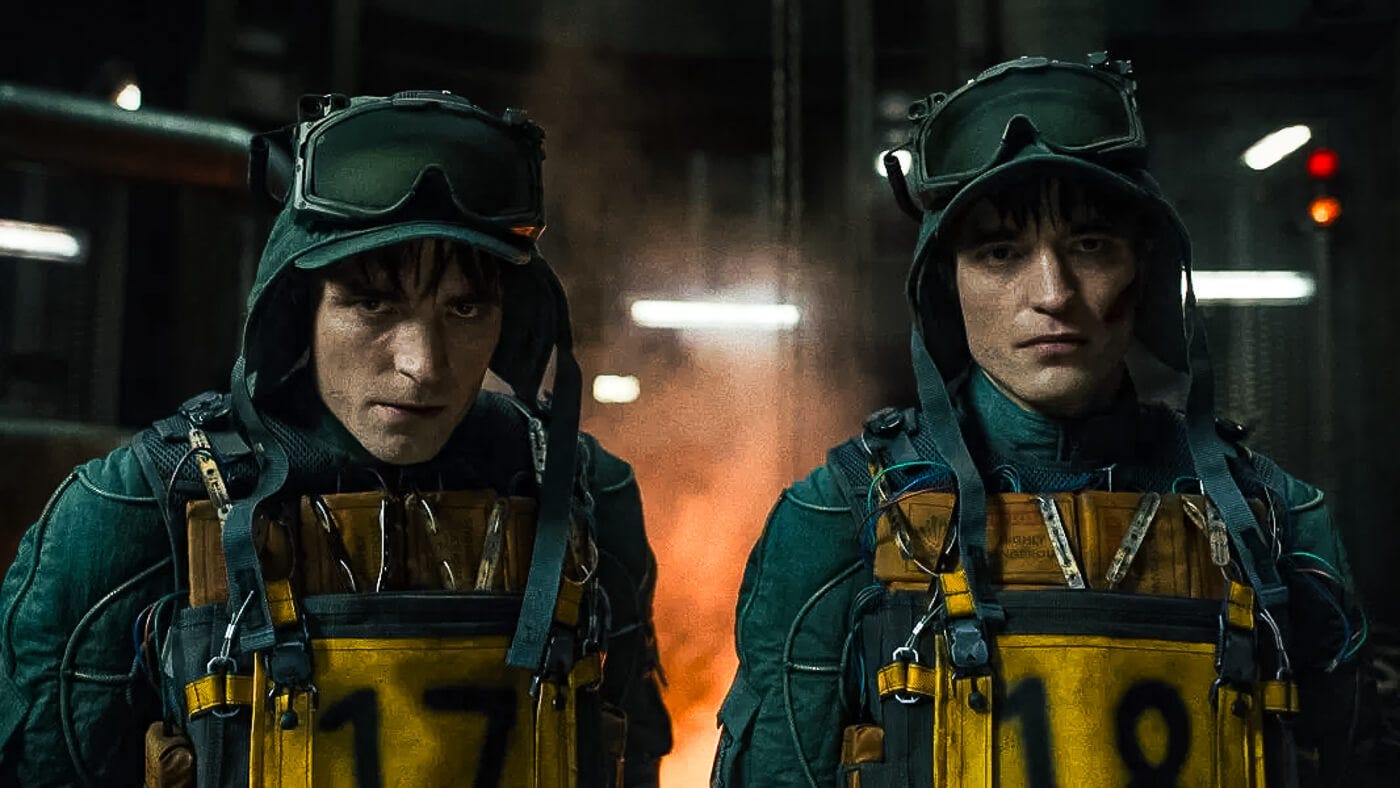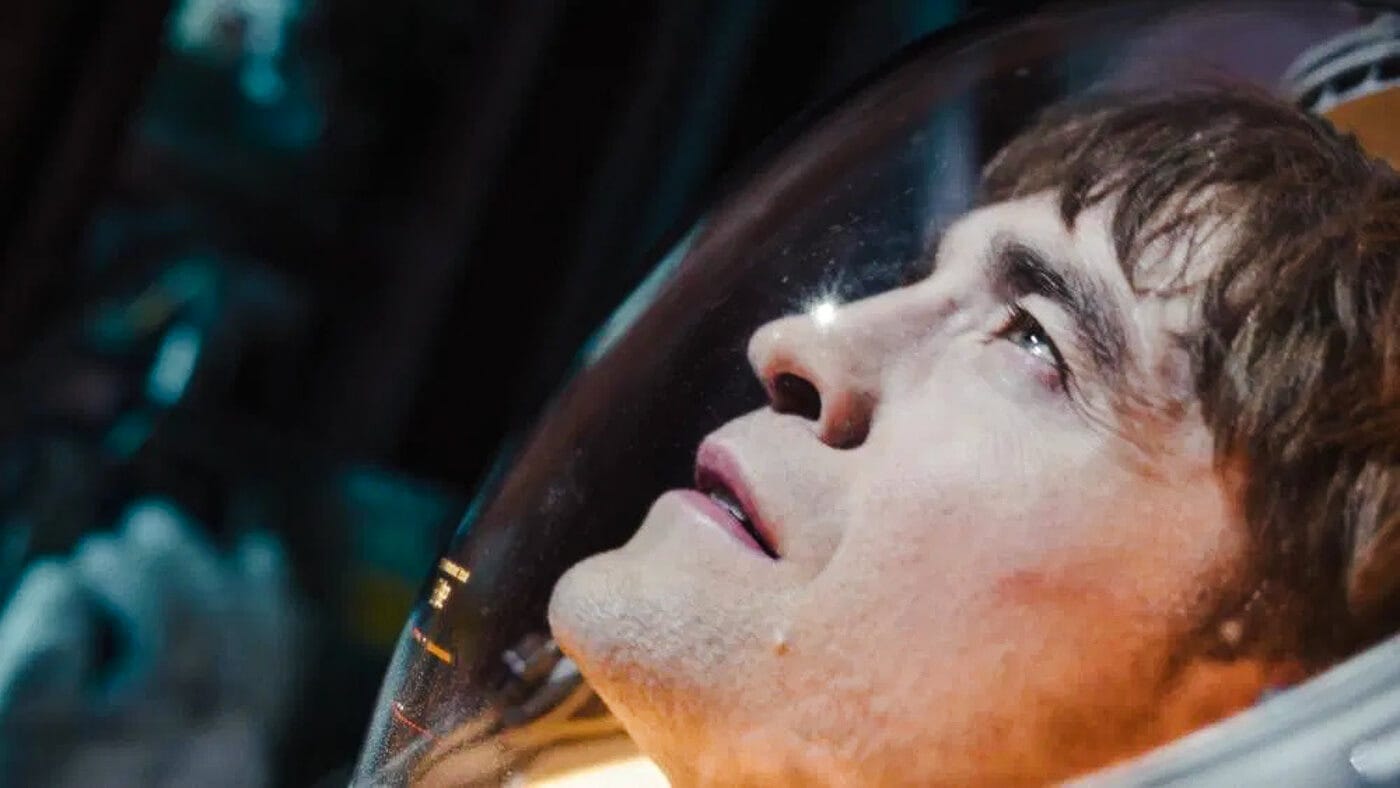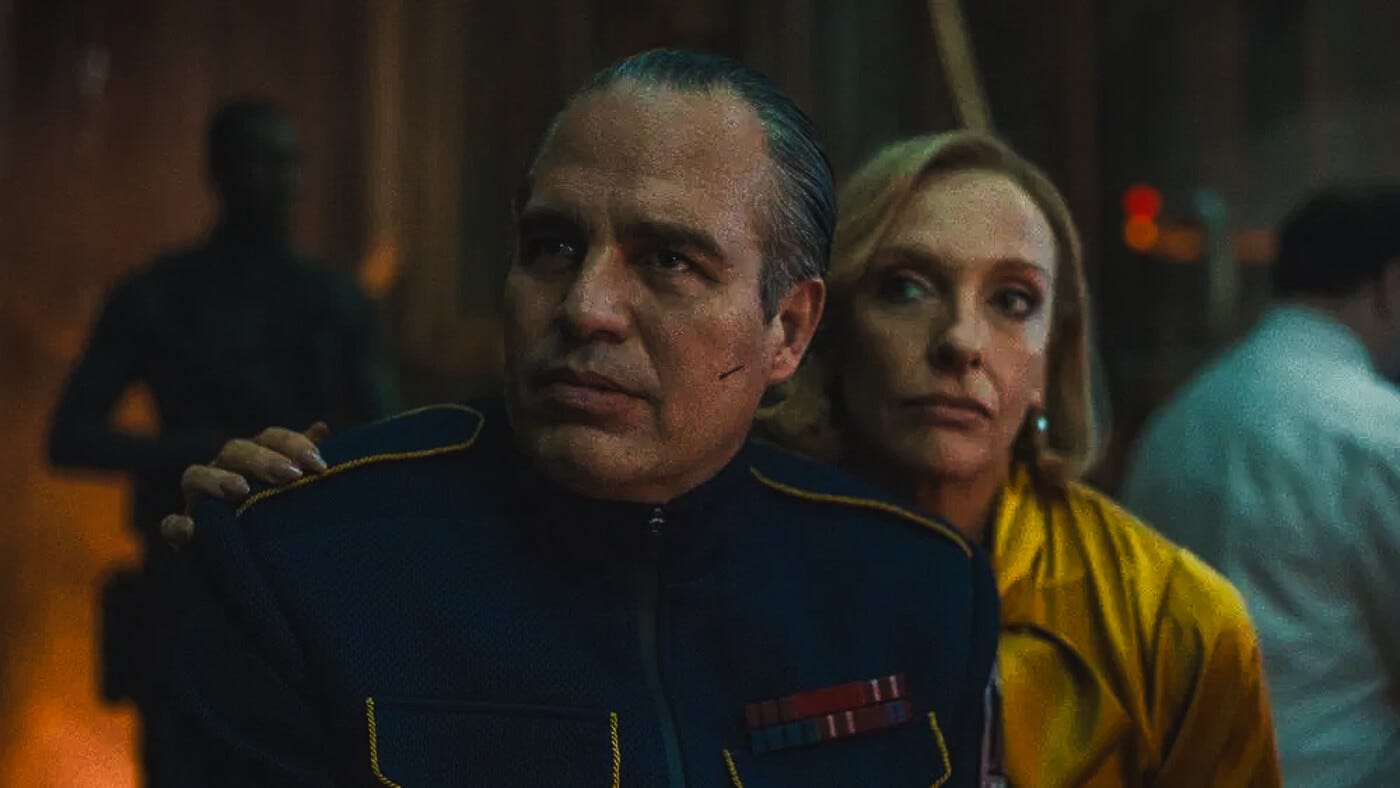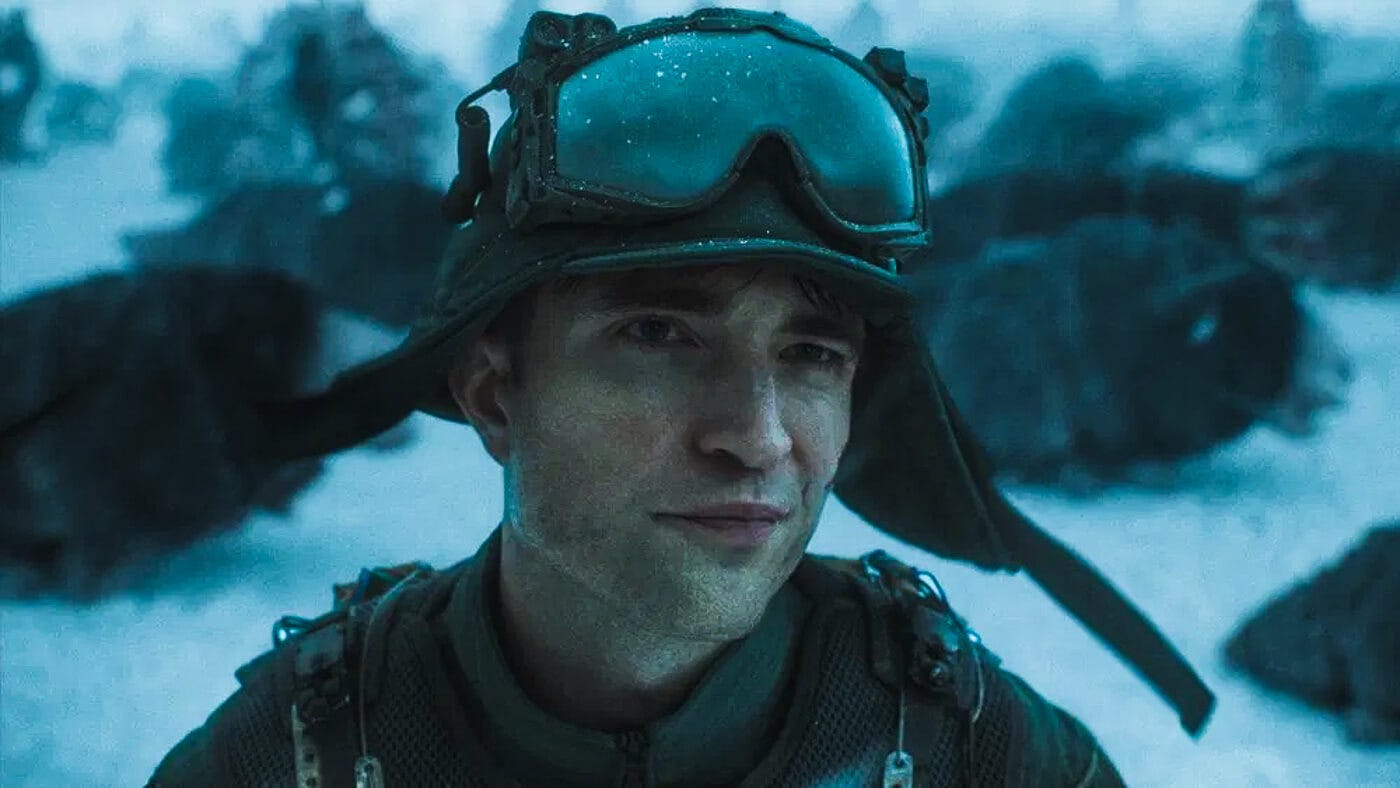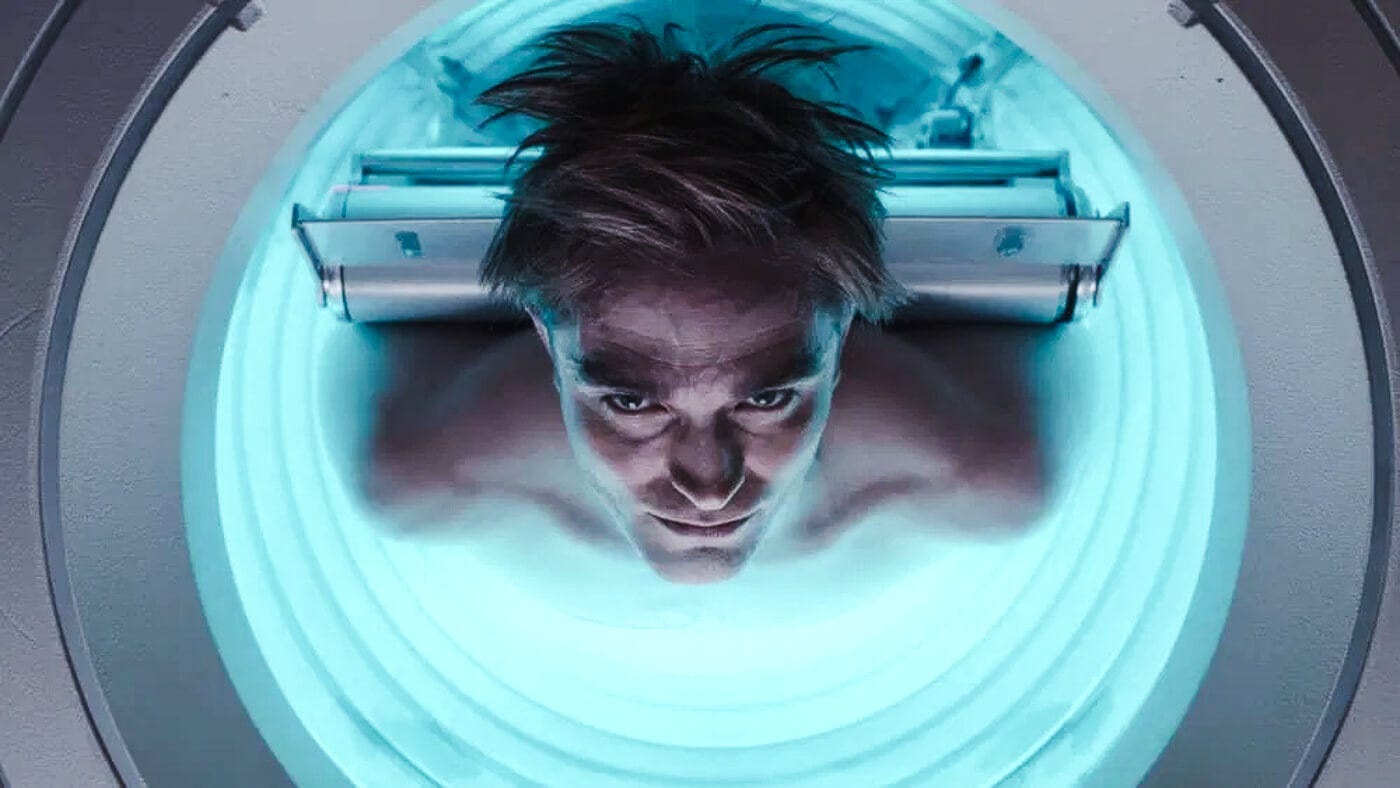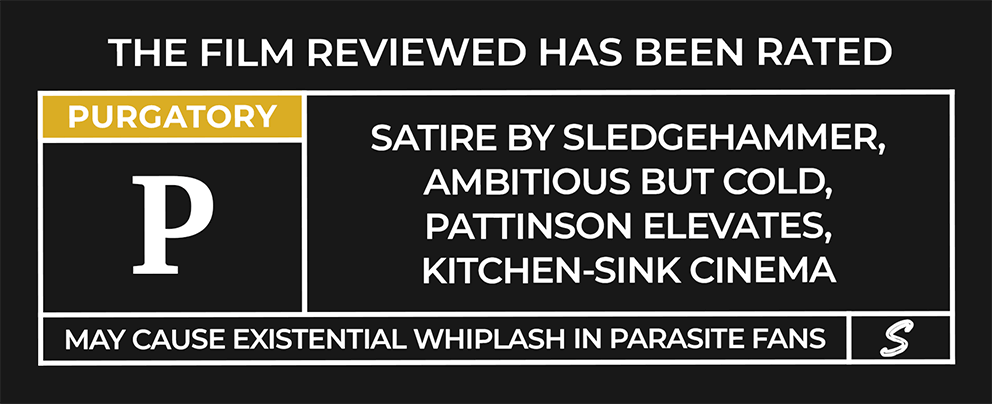🎧 [PLAYBACK: SOUND ON]
First, cue up Jung Jaeil’s score while you read.
🟢 For the full experience, open the score in Spotify.
The Bong Showdown
I couldn’t help but walk away from director Bong Joon-ho’s much-anticipated follow-up to his masterpiece Parasite thinking I’d just witnessed a sloppy amalgam of nearly all his previous features combined.
Mickey 17 is like an unthawed turducken dunked straight into a deep fryer — the kind of overstuffed mess that still mesmerizes in spectacle despite ruining the overall meal and risking burning down the house in the process.
Now, context is crucial here. I consider Parasite to have been such a towering cinematic achievement that it remains one of only two films made in the entire decade of the 2010s to earned an ASCENDED rating by SINephile — by my criteria, elevating it into the realm of the 50 best movies we’ve ever seen.
And, as Bong is well aware, attempting to one-up a picture of that quality is a fool’s game. Anything to come after it is likely to suffer in assessment due to the unintentional yet irresistible comparison. So, I’ve pushed back hard against those instincts to evaluate the picture instead as a standalone entry far more in line with his earlier work. And yet, while there’s so much to admire here, I still can’t help but be disappointed.
To its credit, Mickey 17 is a hugely ambitious undertaking, boasting the dystopian nightmare fuel of Snowpiercer, the social satire and class commentary of Parasite, the misunderstood/feared “other” from Okja, and even some of the existential dread of Mother.
But while those films threaded their ideas with razor-sharp precision, here the satire is so broadly applied that it blunts its own impact. (Full disclosure, SINephile is currently packaging a retrospective on Verhoeven who, as with Boon, is one of the greatest film satirists ever, so this hit at a rough time for comparisons.)
Expendable and Existential
People keep comparing Mickey 17 to Groundhog Day, but the real parallel is Happy Death Day, as the terminally depressed and unskilled Mickey Barnes (Robert Pattinson) isn’t just stuck in a loop, he’s getting killed for our entertainment.
As an Expendable — an engineered underclass whose sole purpose is to serve as human cannon fodder — Mickey pathetically exists only to ensure the safety and prosperity of his space colony’s elites, dying over and over in a cycle he can’t escape.
It’s a premise that cuts deep into themes of class oppression, identity and dehumanization, teasing inherent ethical and moral dilemmas, but instead of aptly tying it to the broader societal theme of xenophobia explored elsewhere in the film, that connection remains oddly untapped.
Sledgehammer Satire
Where Parasite was a scalpel, Mickey 17 wields a sledgehammer. The film’s class and racial dynamics are unmistakable, yet they lack the layered nuance Bong typically brings to such topics.
Mark Ruffalo, as the colony’s bloated, self-important, orange-tinged leader, is practically a caricature — a grotesque fusion of Trump’s narcissism, Musk’s techno-messiah complex, and the performative piety of a televangelist. If that’s where Bong wanted the satire to land, that’s fine, but it veers so far into cartoon villainy that it tempers the bite.
When his sycophantic followers don red baseball caps, it’s impossible not to be reminded of Megalopolis’ similarly too-on-the-nose attempts at contemporary allusion last year, though Mickey 17 thankfully emerges far less bruised than FFC’s misguided endeavor.
Toni Collette, another actor I utterly adore, is painted similarly buffoonish, playing Ruffalo’s wife and confidante whose role sadly never extends beyond panicked exasperation and obsession for material gain.
The remainder of the cast fares a bit better. Steven Yeun (Burning, The Walking Dead) and Naomi Ackie (Blink Twice) turn in solid performances, despite underwritten roles, injecting much-needed depth into a world that often feels constructed more for its ideas than its people.
But Robert Pattinson does the real heavy lifting here, stretching his range across multiple versions of himself impressively, even if he seems derivative of a self-aware, post-modern Forrest Gump. It’s not easy to capture the horror of a man realizing his own uniqueness while the world around him sees his personhood as instantly replaceable — let alone mine dark humor from the absurdity of it.
Subscribe free for more ambitious misfires, stylish sci-fi satire, and cultural critiques that don’t let spectacle off the hook.
Looks That Kill
But even as Pattinson breathes life into Mickey’s existential dilemma, the world around him struggles to feel as tactile. Visually, the film is striking, if somewhat cold.
Bong and cinematographer Darius Khondji (Se7en) craft a believable off-world colony, its sterile futurism lying somewhere between the materialistic and structural hierarchy of Snowpiercer and the shadowy industrial doom of Memories of Murder.
But whereas those films felt alive, full of gravitas, Mickey 17 feels oddly weightless — its atmosphere thematically rich but strangely hollow, lacking the visceral texture that made many of Bong’s previous settings so immersive and hypnotic. And that hollowness isn’t just aesthetic — it extends to the film’s social critique, which frequently gestures at weighty ideas but struggles to ground them with the same precision or impact.
And that may be the film’s ultimate weakness.
Mickey 17 wants to be an incisive critique of class hierarchy, dehumanization, and the vile politics of unbridled aggrandizement, but instead of weaving them into a singularly focused satire, it spreads itself too thinly.
Bong has never been one for subtlety, but his best films channel that bombast into a core driving thesis. Here, the narrative strains under the weight of too many competing allegories — corporate greed, imperial entitlement, racial exploitation, existential crisis — without packaging them into a singular gut punch of a statement.
The result is a film bursting with fascinating ideas yet curiously lacking in urgency. As satire, we can see it aiming for the jugular with every weapon in its arsenal — but sadly failing ever to twist the knife.
CLASSIFIED EXPENDABLE REPORT
+ 2 points for clearly having been completed under the assumption that the 2024 presidential election would turn out quite differently than it did. (The multiple references to Ruffalo’s *two* consecutive electoral losses, anyone?)
+ 3 points for Ruffalo mocking the native population’s speech patterns while simultaneously ratcheting his own voice into a screeching, racist rant that lands with ironic perfection.
- 2 points for Ruffalo’s capped teeth making him look like Matt Dillon in There’s Something About Mary
- 3 points for my friend noting afterward that Pattison was serving MADtv’s Michael McDonald as Stuart Larkin throughout… and now I’ll never unsee it
If you walk in with tempered expectations, there’s some Bong brilliance buried in here, but Mickey 17 struggles to bring its strongest ideas to the surface, leaving its ambition more compelling than its execution.
📊 [PLAYBACK: PERFORMANCE]
Budget: $118M
Worldwide Box Office: $132M
Cinema DEFCON Threat Assessment:
56 Days — Theatrical-to-Streaming WindowVerdict
Too big to flop, too weird to hit. Just under two months to streaming means we’re still in the Danger Zone for theater survival. Critical goodwill and an open calendar bought it some time, but underwhelmed audiences meant Bong’s clone caper barely broke even.
🎬 [PLAYBACK: TRAILER]
Pattinson dies. Again. And again. And again. The trailer teases Bong Joon-ho’s clone-loop space odyssey with just enough weird to leave your molecules unsettled.
Share this review with your fellow cinephiles who appreciate ambition even when it’s messy. And if it hit or missed, tap like or leave your least expendable thought in the comments.


